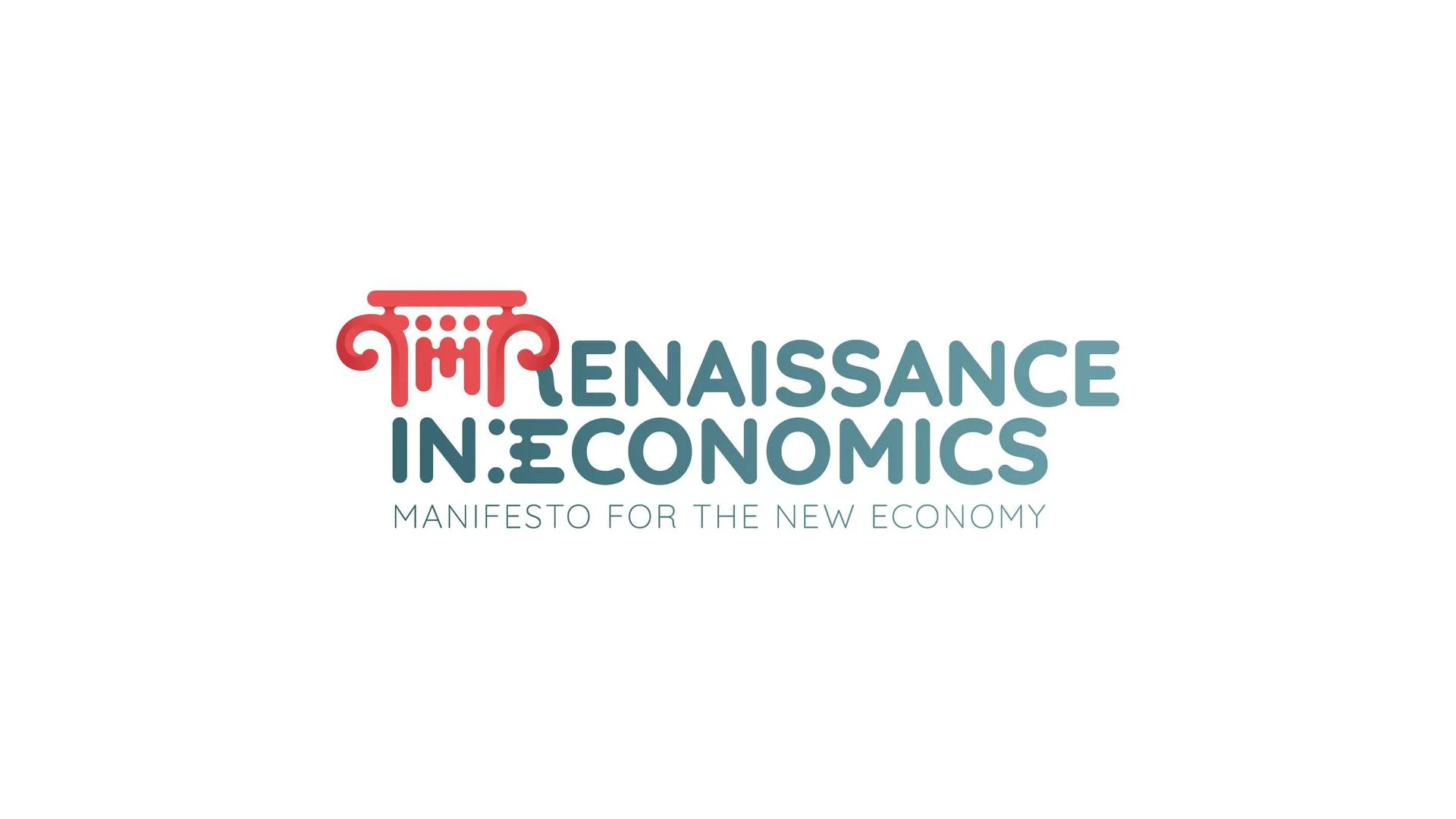
Work-Life Balance
Silent Success: How Quiet Quitting Can Boost the Economy
Read a summary using the INOMICS AI tool
In a world where we are constantly told to hustle, grind, and push ourselves to the limit, the idea of taking it easy can seem counterintuitive. However, there is a growing movement suggesting that doing only what’s necessary at work is the best thing we can do for ourselves and for the economy. This is known as the concept of "quiet quitting".
Rather than pushing ourselves to the brink of exhaustion, quiet quitting involves recognizing when something is not productive and making the decision to step back and reassess. This can lead to greater productivity, increased creativity, and ultimately, a stronger economy.
In this article, I'll explore how quiet quitting can affect the economy. I'll delve into the benefits of taking a step back, the impact it can have on our mental health, and the potential economic benefits of a more balanced approach to work. So sit back, take a deep breath, and let's explore the power of quiet quitting.
Understanding quiet quitting
Quiet quitting involves a strategic and intentional decision to let go of unnecessary tasks, projects, or overtime work in order to redirect time and energy towards more fulfilling or productive endeavors. At its core, the concept refers to withdrawing from tasks beyond one’s assigned duties and becoming less personally invested in work.
Quiet quitters continue to fulfill their main job responsibilities, but they turn down activities that involve going above and beyond. No more working late, showing up early, or participating in non-mandatory tasks. Simply no extras.

Image credit: kues1 on Freepik.com
It’s worth mentioning that there's an irony in calling it "quitting" when employees are still showing up for their jobs and doing their work. It seems unreasonable that current society glorifies constant work and a hustle culture mentality, to the extent that performing the tasks expected of you within your designated work hours and then leaving is now being referred to as "quitting".
The quiet quitting trend did not appear by accident; its emergence is linked to the COVID-19 pandemic. Due to the pandemic, many individuals lost their jobs, resulting in a smaller workforce than before the outbreak. Although some people have secured new employment or been rehired, existing workers have been experiencing more pressure as some have been tasked with additional responsibilities that laid off workers used to fulfill.
In other words, the concept of quiet quitting seems to be an extension of the Great Resignation, where people are standing up (and walking out) against the expectation of working longer hours without any extra pay. In contrast to the short-lived phenomenon of the Great Resignation, it remains to be seen whether the quiet quitting trend will become a more permanent movement that will bring about changes in the way people perceive work and labor practices. The eventual impact of quiet quitting may depend on whether workers can hold leverage over employers for long enough to embed some of these practices into the workplace.
The economic benefits of quiet quitting
The traditional view of quiet quitting states that it is bad for the economy, which makes sense on a surface level. When people become disengaged from their jobs, it can lead to decreased productivity and therefore lower economic growth.
However, this view ignores the potential benefits of quiet quitting. When individuals withdraw from unnecessary tasks or projects that are not aligned with their job description or goals, they are able to redirect their energy and skills.
This can lead to increased mastery over their role, heightened creativity, and more opportunity for innovation, which can ultimately benefit their organization and by extension the economy, even leading to the creation of new businesses or industries. When individuals quit tasks or unnecessary work projects, this gives them more space and time to develop their skills and pursue their passions.

Image credit: rawpixel.com on Freepik.com
In other words, when individuals allocate their time and effort towards more significant endeavors, it can potentially result in the creation of fresh business ventures and inventive personal projects. This shift in focus has the potential to cultivate a thriving entrepreneurial culture, which can lead to increased national productivity, creativity, and innovation on the macro-level.
Furthermore, quiet quitting can lead to increased happiness and well-being for workers, which can have positive economic effects. When individuals are happier and more fulfilled, they are more productive and perform better in their jobs. By letting go of unnecessary tasks and being more psychologically invested in their core responsibilities, employees could experience an improvement in performance.
Balancing work and life improves mental health and wellbeing
The World Health Organization acknowledges burnout as a work-related condition that manifests as feelings of depletion, exhaustion, cynicism, mental detachment from work, and reduced productivity. Burnout is a severe consequence of excessive work and can cause lasting physical, emotional, and mental health problems.
Of course, overworking will lead to increased production levels which can be observed immediately in the short-run. However, in the long-run when employees suffer burnout, the impact of such a mental state is likely to cancel out any positive outcomes reaped in the short-run. Therefore, we can safely say that overworking is likely to cause a long-term decline in performance due to eventual burnout.

Image credit: DCStudio on Freepik.com
Preventing employee burnout is extremely important for all organizations, because its repercussions can be destructive. Establishing a healthy working environment where both employers and employees embrace the concept of “quiet quitting” – or stated another way, where the work relationship is clearly defined and where overwork is discouraged – could cause major improvements in the workplace as well as our personal lives.
With a mindset that is not driven by stress, work pressure, and unhealthy levels of overworking, employees would find themselves performing better and less likely to burn out. This would lead to increased innovation, economic growth, and better mental health and wellbeing.
The benefits of improved work-life balance
Quiet quitting aims to provide healthy boundaries between work and personal life, so that there is clearly delimited time for both. Studies have found that work-life balance is linked to better mental health overall. Some of the most prominent studies showing this relationship include the following:
- A study published in the International Journal of Environmental Research and Public Health in 2020 found that employees with better work-life balance reported lower levels of psychological distress and higher levels of life satisfaction (Shimazu, Schaufeli, Kamiyama, & Kawakami, 2020).
- A research paper published in the Journal of Applied Psychology in 2017 found that employees who had greater control over their work schedules and who were able to take time off when needed experienced less psychological strain and burnout (Hill, Hawkins, Ferris, & Weitzman, 2017).
- A study published in the Journal of Occupational Health Psychology in 2008 found that employees who perceived their work as interfering with their personal and family life experienced higher levels of emotional exhaustion and lower levels of job satisfaction (Greenhaus & Powell, 2006).
Better work-life balance also involves disconnecting your self-worth from your job. This can be difficult because when work is your primary focus, it’s hard not to associate your value as a person with it.
Yet, it’s important to realize that work failures or achievements do not necessarily define you. Identifying yourself so closely with work achievements or promotions can lead to increased levels of stress. People who rely on work for self-worth or fulfillment can often react to work stresses by anxiously overworking themselves into a burnout.
But, when employees work less and engage in mandatory tasks only, work becomes much less pressuring and stress levels decline. As a result they will be able to think clearer, be more creative, be less distracted and perform better at work. When they go home, they will show up the next day well-rested and ready to put in more effort for better outcomes.
Increased well-being is a worthy goal that also has economic benefits
Employees who are happy tend to display higher levels of productivity and commitment in their work. Such positive emotions can also help reduce instances of distraction or disengagement.
Additionally, when individuals experience happiness, they tend to exhibit greater sociability and willingness to build relationships with colleagues, which can contribute to their overall job satisfaction. By prioritizing their main task at hand, employees can avoid the negative effects of feeling like they are constantly competing with their peers, instead building these relationships. In fact, the desire for workplace friendships is ingrained in our basic human desire for a sense of belonging. This in turn can enhance loyalty towards the workplace and improve job performance, leading to greater productivity and higher profits.
As a response to the "great resignation," quiet quitting has become a liberating choice for people who prioritize balance instead of overwork and burnout. By setting boundaries and not tying their self-worth to work productivity, workers are taking care of their well-being.
Employers should see this as an opportunity to support their staff's overall well-being by encouraging a better work-life balance. This will communicate to employees that they are valued, leading to greater employee engagement, productivity, and loyalty – a win-win situation for everyone involved.
New employer practices that embrace the concept of quiet quitting or other methods of healthy focus in the workplace could include anything from adopting a 4-day work week to incorporating mental and physical well-being practices, allowing flexibility in schedules, supporting remote work, agreeing to reasonable workloads, or supporting frequent breaks during the work day.
The Bigger Picture: how quiet quitting can promote the UN’s SDGs
Encouraging the notion of quiet quitting as a normalized, standard mentality in the workplace has the potential to boost national progress towards the achievement of the UN Sustainable Development Goals (SDGs).
SDG 3: Good Health and Wellbeing
Adopting the concept of quiet quitting empowers individuals to devote more attention and effort towards their dietary habits, fitness regime, relationships, hobbies, and interests, which collectively contribute to enhancing their overall wellness and leading a healthier lifestyle.
SDG 5: Gender Equality
Embracing quiet quitting could facilitate the achievement of goal five, which is gender equality. With the provision of reasonable workloads and flexible schedules, women can adjust their work hours according to their convenience and can balance their professional and personal lives more efficiently, resulting in better job performance. This is especially necessary for working mothers. Such flexibility prevents the forced choice between work and home, for both men and women.
SDG 8: Decent Work and Economic Growth
Quiet quitting has the potential to encourage more innovation in society, as discussed above. It is important to advocate for policies that prioritize the growth of productive activities, promote job creation, and foster innovation and entrepreneurship. These policies should also address labor market challenges and ensure development-oriented policies.
References
Greenhaus, J. H., & Powell, G. N. (2006). When work and family are allies: A theory of work-family enrichment. Academy of Management Review, 31(1), 72–92. https://doi.org/10.5465/amr.2006.19379625
Hill, E. J., Hawkins, A. J., Ferris, M., & Weitzman, M. (2017). Finding an extra day a week: The positive influence of perceived job flexibility on work and family life balance. Journal of Applied Psychology, 102(8), 1346–1364. https://doi.org/10.1037/apl0000225
Shimazu, A., Schaufeli, W. B., Kamiyama, K., & Kawakami, N. (2020). Work–life balance as a predictor of recovery experiences and well-being: A cross-sectional study. International Journal of Environmental Research and Public Health, 17(4), 1282. https://doi.org/10.3390/ijerph17041282
Header image credit: Racool_studio on Freepik.com.
-
- Postdoc Job
- (Remote)
- Posted 2 weeks ago
Vacancy for a Postdoctoral fellow
At University of Ghent in Gent, Belgium
-
- PhD Program, Program, Postgraduate Scholarship
- Posted 1 week ago
PhD Program in Management - 11 Fully Funded Scholarships
at Luiss Guido Carli University of Rome in Rome, Italy
-
- Postdoc Job
- Posted 1 week ago
Postdoctoral Research Fellow Opportunity
At University of Notre Dame in Notre Dame, United States













